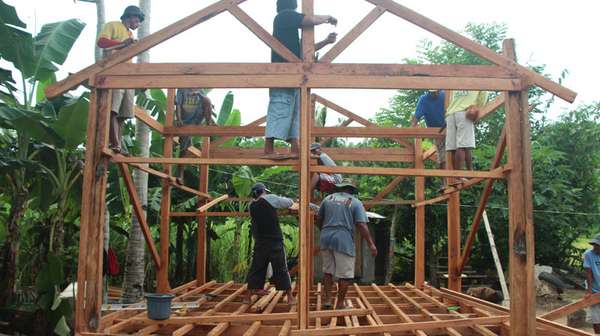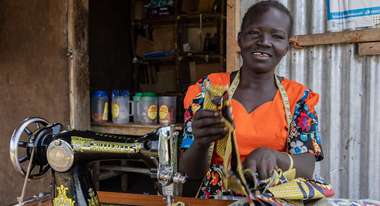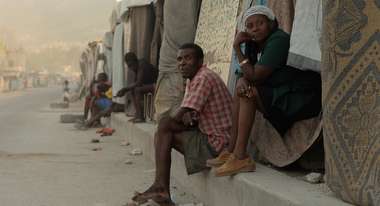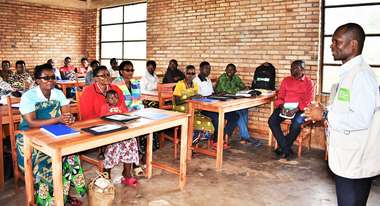Disaster aid with understanding
5th Anniversary Haiti Earthquake
Haiti must live without humanitarian aid in the long term. At the end of the year, Welthungerhilfe will wind up its rehabilitation programme in Haiti.
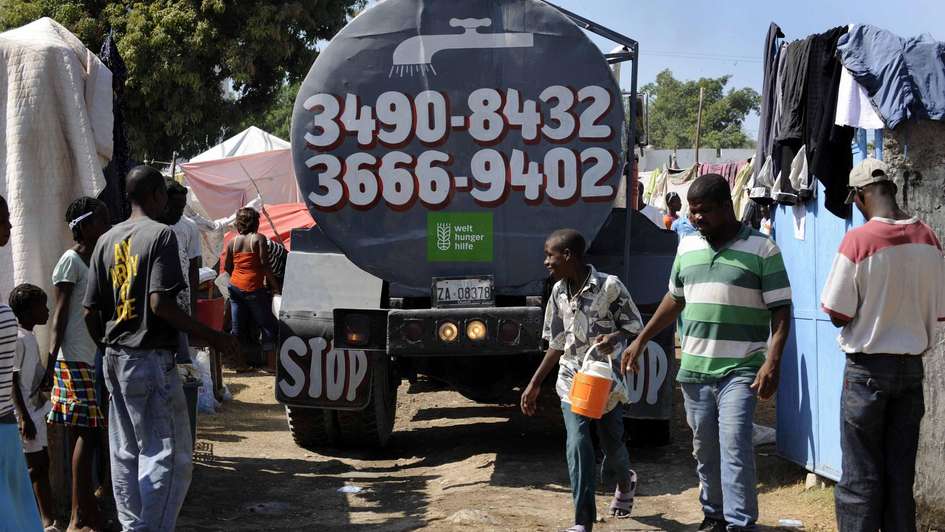
At the end of the year, Welthungerhilfe will wind up its rehabilitation programme in Haiti. After the devastating earthquake on 12th January 2010, Welthungerhilfe initially concentrated on survival aid and reconstruction. At the same time, important foundations were laid for the long-term development of the country, particularly in nutrition and agriculture. For this purpose, almost 50 million Euro was made available, enabling 1.5 million people to be supported. In future, the focus lies on programmes that strengthen local forces and structures, so that the country can better help itself in the case of future difficulties and in order that a strong civil society arises.
“Haiti is not a country that should be allowed to be dependent long-term on foreign humanitarian aid. This would stunt any self initiative. After the earthquake 5 years ago, fast and wide-ranging emergency aid was necessary and saved many lives. But, in the long term, the country must take control of its own structural problems. If an autumn tropical storm wreaks havoc, we should limit ourselves to short-term prompt aid, such as food and tents for survivors.
The government must be responsible for the long-term provision in such recurring disasters. The responsibility for a long-term improvement in living conditions lies with local state structures. For this, a strong civil society is necessary. If aid organisations always provide emergency aid, Haiti will remain dependent on such help. Instead, we want to support the Haitian government to find its own sustainable concepts for the continuous development of the country”, explains Dirk Guenther, Country Director of several years in Port au Prince, of the Welthungerhilfe approach.
Welthungerhilfe reached 1.71 million people in Haiti.
- Emergency aid: Clearance of building rubble and the distribution of relief supplies such as tents, water and food.
- Reconstruction: Building of 893 homes, 15 schools, 282 cisterns, tanks and hand pumps, as well as 124 kilometres of road and 111 kilometres of sewage drains.
- Development cooperation: Training sessions in the field of agriculture and disaster prevention.
Welthungerhilfe is one of the largest private aid organisations in Germany; politically independent and non-denominational. It is fighting for ‘Zero Hunger by 2030’. Since its establishment, more than 8,500 overseas projects in 70 countries have been supported with 3.27 billion euros. Welthungerhilfe works on the basic principle of empowering people to help themselves: from rapid disaster relief to reconstruction and long-term development cooperation projects with national and international partner organisations.
On request, we provide further material. You can contact us here.





